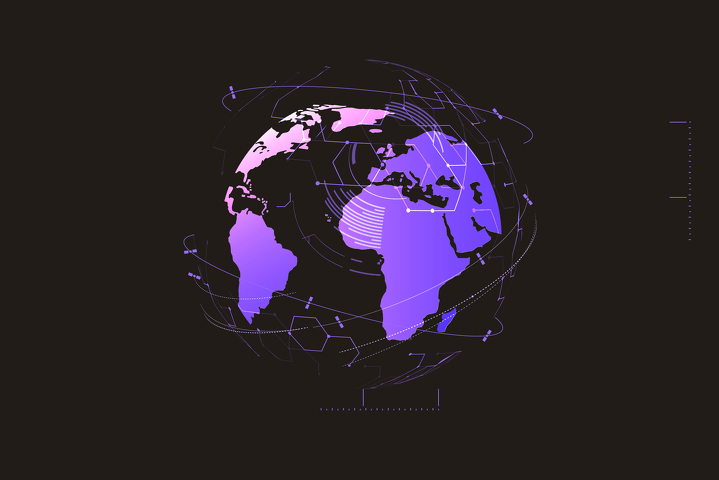The online international science forum named Foreign and Security Policy Conference 2020 Intelligence and National Security beyond Industry 4.0 was held on 24 November 2020. The event was realised in partnership with the National University of Public Service, the British Embassy in Budapest, and the Budapest Office of the Konrad-Adenauer-Stiftung.
With the assistance of national and international experts, the conference examined security challenges originating from the latest space and cyber technology achievements, while bearing in mind that Hungary and its allies continue to be at the forefront of scientific development. The event put special emphasis on the rapid development of information technology and its viral role in our everyday lives and national economies, as well as the new type of arms race and cooperation between national security bodies.
From the side of the organisers, first, Klára Breuer, International Director of the National University of Public Service, delivered her opening remarks, where she spoke about the educational and science opportunities of the Ludovika Campus. Secondly, HE Paul Fox, Ambassador of the United Kingdom to Hungary, described the investment programme of the United Kingdom regarding the use of the latest technologies. Then Zsolt Csepregi, Deputy Director of the Antall József Knowledge Centre, also delivered his opening remarks.
Péter Keresztes, Deputy Head of Department of the Directorate for Analysis of the Information Office in Hungary, put the question examined by the conference into a context most decisive from a political, safety, and economic perspective today. By focusing on COVID-19 and its impact, one of the most important topics, that is currently affecting our lives, the expert highlighted the weaknesses, deficiencies, and opportunities of intelligence agencies across the globe.
The first panel discussion entitled Global Threats Origination from and Possibilities Offered by New Technologies included Dr Beyza Unal, Deputy Director of the Informational Security Program of Chatham House, Professor Dr Wolfgang Koch, Head of Sensor Data and Information Fusion Working Group at the University of Bonn, Dávid Szesztai, Head of Department for Space Activities at the Ministry of Foreign Affairs and Trade of Hungary, and Dr Péter Stepper, Senior Research Fellow at the Antall József Knowledge Centre, who acted as moderator The panel discussion offered an insight into new technologies, with special regard to potential uses of space and satellites in intelligence, as well as the future of information gathering in the fight between great powers and in countering terrorism. All the three experts highlighted the importance of space research, where competition between the countries involved is becoming more intense, and so Europe has to increase its efforts in this field even more than before. Professor Dr Wolfgang Koch pointed out that, due to the development of digitalisation, it is important to protect satellites, because, as with the development of the artificial intelligence, new types of challenges have appeared that require unusual answers through the combined use of social sciences and the newest technologies. Dávid Szesztai’s opinion, the future of humanity depends greatly on space research, information on its dangers must be provided, however, its benefits should also be highlighted. During the panel, special attention was paid to cooperation frameworks after the Brexit, the cooperation dimension of NATO-EU, the information aspect of hybrid warfare, and the ways in which these platforms were disrupted or potentially developed by reactions to the COVID-19 crisis.
The second panel discussion entitled Intelligence Cooperation in the Cyber Space and Beyond included Sir David Bruce Omand, Professor of the Department of War Studies of Kings College London and Former Director of the Government Communications Headquarters in the United Kingdom, Dr Csaba Krasznay, Head of Institute of Cyber Security at the National University of Public Service, and Kilian Vieth-Ditlmann, Project Manager of Digital Rights and Surveillance and Democracy at Stiftung Neue Verantwortung. During the panel, the future of intelligence gathering procedures and cybersecurity in the accelerating technological environment were discussed, taking into account the incomplete international legal framework and the organisational culture of the different types of national security agencies. The experts also highlighted the multidimensional nature of cybersecurity, provided information on the context of geographical determination and great power competition, as well as ethnical issue that lies in the co-existence of national and cybersecurity and personal rights. The experts also discussed the most important cooperation opportunities in the Euro-Atlantic community in the field of cybersecurity, underlining that the three most important aspects of cybersecurity are building on the strategic advantages of the western federal system, the encouraging largescale technological investment, and further strengthening the Euro-Atlantic federal framework.
The conference is available on the YouTube channel of the Antall József Knowledge Centre.

